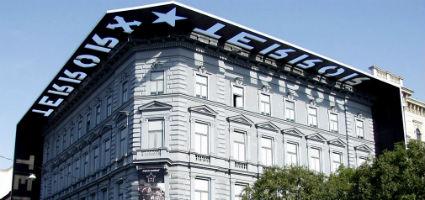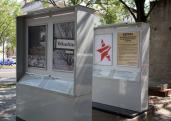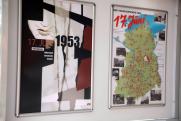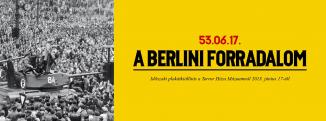2024. May 5. Sunday
House of Terror Museum - Budapest
 |
Address: 1062, Budapest Andrássy út 60.
Phone number: (1) 374-2600
E-mail: muzeum@terrorhaza.hu
Opening hours: Tue-Sun 10.00-18.00
|
The exhibition has closed for visitors.
2013.06.17. - 2013.07.01.
Museum tickets, service costs:
|
Ticket
(valid for the temporary exhibitions, the permanent exhibition is not included )
|
1000 HUF
|
/ capita
|
|
Ticket for adults
|
2000 HUF
|
|
|
Group ticket for adults
(from over 20 people)
|
1500 HUF
|
/ capita
|
|
Ticket for students
(EU citizens from the age of 2 to 26 or with ISIC Card )
|
1000 HUF
|
|
|
Group ticket for students
(from over 20 people)
|
800 HUF
|
/ capita
|
|
Ticket for pensioners
(EU citizens from the age of 62 to 70)
|
1000 HUF
|
|
|
Group ticket for pensioners
(from over 20 people)
|
800 HUF
|
/ capita
|
|
Supplementary fee
(valid for the temporary exhibitions, extra ticket for the permanent exhibition )
|
500 HUF
|
/ capita
|
|
Group guide
(max. 30 people)
|
6000 HUF
|
|
|
Group guide
(2 groups, max. 60 people)
|
8000 HUF
|
|
|
Group guide
(max. 30 people)
|
8000 HUF
|
|
|
Group guide
(2 groups, max. 60 people)
|
15000 HUF
|
|
|
Audio guide
(in English, German)
|
1500 HUF
|
At the end of the Second World War, it became clear that the two superpowers, the United States and the Soviet Union can not agree on the future of Germany. After either the 1949 Berlin crisis or the 1952 Stalin's master plan did not resolve the impasse, the issue involving Germany remained unsolved until 1991. From the middle of 1952, both sides settled down for the long term in its sphere of influence. The German communists, led by Walter Ulbricht, began Russianizing the GDR.




